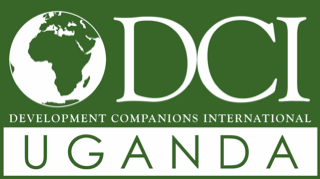Did you know that literacy is much more than reading and writing? While reading, hearing, and speaking the Ugandan national language, which is English, is vital and the basis for further education, it is only a part of the life skills we share with our students. We want our people to be able to live the full, productive, healthy, self sustaining, and fulfilling lives that God intended for them.
This month we will highlight our Gender Today subject.
There are many different cultures in Uganda. Each has its own positive aspects, and each its own negative traits. But one common feature around the country is the traditional devaluing of women and their rights.
Did you know that people in many communities refuse to pay for their daughters to go to school? They believe their sons are a good investment and will support them when they are old, but they know they will soon sell their daughters to other families, so why bother spending money on their education? In some Ugandan societies, educated girls are even less “marketable” because the men might feel threatened by girls with knowledge and skills outside the kitchen and garden.
These peculiarities of culture have created generations of women who have no knowledge or skills to better themselves, to bring added income into the family, to encourage and push their children through school, or even to support their family if they lose their husbands.
Our Gender curriculum challenges students to think about their own value and the value of others in the community. We emphasize human rights, Ugandan family law (of which many people have been kept ignorant), and the fact that they are all made in the image of God. Students are challenged to think about their own culture, and learn to look at it objectively, choosing their own priorities and values.
Mercy Chemunung, of Lemsui in Nakapiripirit district within the Karamoja region, blames greed and barbaric character on the part of parents, causing the majority of people to drop out of school in this wild region. The girls are given out in marriage as early as fifteen years in exchange for 32-35 head of cattle.
She says parents look at educating girls as a waste of resources since they are soon married off and take the knowledge to different homesteads. However, they delight in educating the boys, with the idea of retaining the knowledge within their homesteads. But even these boys often refuse to finish and instead rush to utilize the bride price from their sisters and then end up also marrying at an early age.
Our Gender subject is quite broad. In addition to teaching how to critically assess culture and human rights, we also teach about parenting skills, reproductive health and birth control, harmful practices such as female genital mutilation, the equal value of people with disabilities, and civics, including how all levels of government in Uganda operate and how they can actively participate in the political process.
In the Gender section of our curriculum, we do not tell our students what to think or even what their values should be. But we do challenge them to think critically about their own cultures, and we give them much knowledge about their rights, how others live, and how God values them equally. Then we watch while they lead their families and communities to keep the healthy and good parts of their culture, and maybe adjust the parts that hold people back from success and fulfillment in life.



 DCI has been developing our programs with Ugandan churches for more than a decade now. We have learned much, and we have a lot of experience. Our Ugandan staff are ready to grow. But we must raise funds to do so. Right now we are ready to go with classes in 13 more villages that would serve nearly 500 families. Those classes cost about $200 per month each. Or less than $7 per student per month for three years. This is a bargain price for a program that so radically improves the lives of people and their communities. A DCI education prepares adults to read the Bible and to continue learning on their own from other sources. It also prepares them to participate in the future of a country which may face drastic changes and decisions as the mostly-young population grows up. We welcome regular, sustaining donations, one-time donations and group donations. Each person who contributes becomes part of our team, providing vital skills to adults eager to experience new opportunities to participate in their communities and strengthen their families.
DCI has been developing our programs with Ugandan churches for more than a decade now. We have learned much, and we have a lot of experience. Our Ugandan staff are ready to grow. But we must raise funds to do so. Right now we are ready to go with classes in 13 more villages that would serve nearly 500 families. Those classes cost about $200 per month each. Or less than $7 per student per month for three years. This is a bargain price for a program that so radically improves the lives of people and their communities. A DCI education prepares adults to read the Bible and to continue learning on their own from other sources. It also prepares them to participate in the future of a country which may face drastic changes and decisions as the mostly-young population grows up. We welcome regular, sustaining donations, one-time donations and group donations. Each person who contributes becomes part of our team, providing vital skills to adults eager to experience new opportunities to participate in their communities and strengthen their families.